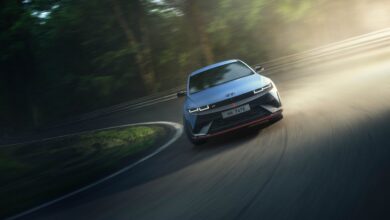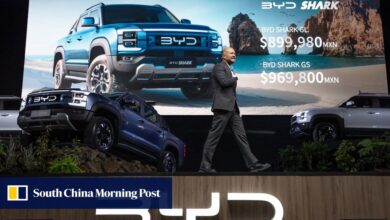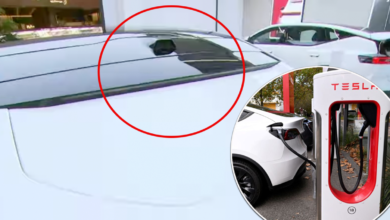Sick of paying for petrol? Here’s 6 electric vehicles that fill up for as low as $18

The uptake of electric vehicles (EVs) hasn’t been free of controversy, but there’s no denying more Australian motorists are plugging in. Sales figures have more than doubled in the last two years and this could be due to the daunting unpredictability of petrol prices, or that EVs are getting more affordable.
Aside from a home, a car may be one of the most significant purchases an Aussie makes, so considering value for money is paramount. For a brand-new EV, prices can start at about $39,000 and push out to well over $100,000. But then there’s how you’re going to charge it and whether that’s cost-effective.
More than half of prospective new car buyers in Australia fear battery-powered cars are too expensive, according to a new EV report, but William Stopford, from CarExpert, told Yahoo Finance there’s never been a better time to buy as there are more options than ever.
He’s broken down his “best value” picks for Aussies wanting to break into the EV market.
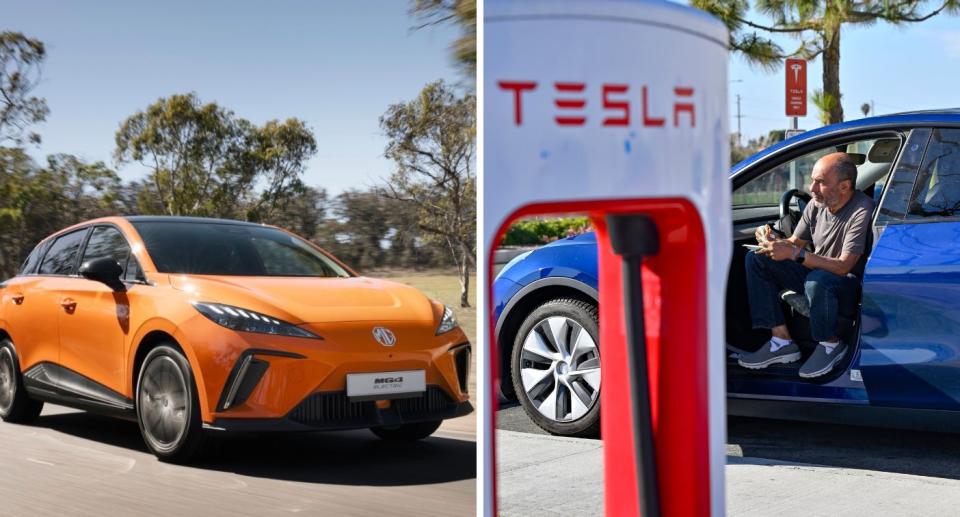

But first, it’s important to know how much charging an EV would cost.
How much does charging an electric vehicle cost?
Canstar reports that the average electricity prices in Australia lie between 25 and 45 cents per kilowatt-hour (kWh), with the average price in Sydney being approximately 35.7c/kWh.
Based on this price, fully charging one of the cheaper EV models available in Australia, with a battery capacity of 51kWh, would cost approximately $18. That would give you a range of between 350km and 530km depending on where and how you drive it. We will use this metric below to calculate estimated charge costs.
RELATED:
It cost Australians an average of $73.10 to fill up with petrol last year, according to Budget Direct. That figure jumps to over $100 for drivers of diesel cars, utes and 4x4s.
Most cars will fully charge overnight when plugged into an inbuilt high-powered at-home charger, but it may take three times that if you rely on a standard charger that plugs into the wall. Most drivers will not need to regularly charge their battery from zero to 100 per cent.
A car with a 60kWh battery would cost between $24 and $42 to fully charge at a public fast-charging station, giving you about 450km of range, according to Zecar, which offers a calculator to help you work out how much it would cost to charge your car.
Top 6 best-value electric vehicles in Australia
MG4
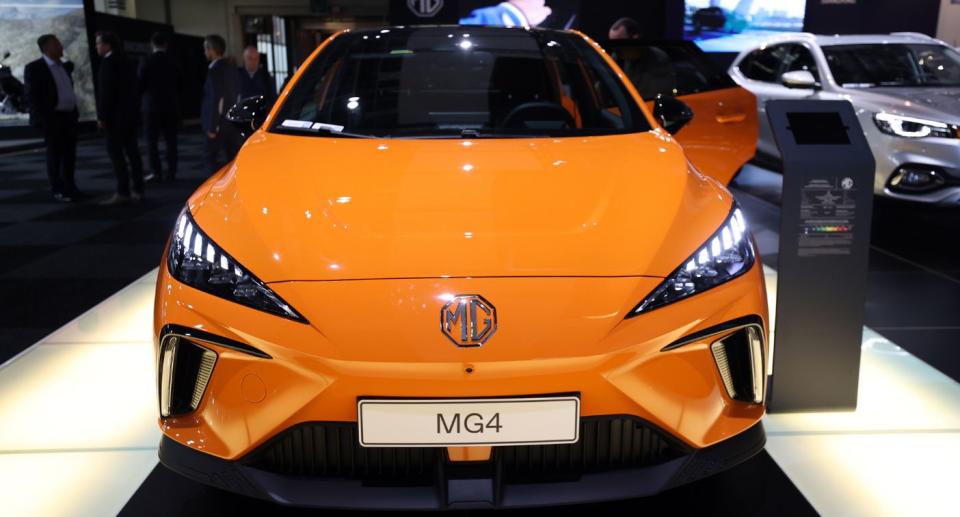

Price: $38,990 – $55,990.
Range: 350km – 530km (WLTP).
Advantages: “The MG4 is enjoyable to drive and it really is a bargain. It’s probably my pick of the cheapest EVs on the market, it really stands out to me.”
Disadvantages: “The in-car tech isn’t as slick as some EVs and the interior is very minimal but there’s an update coming up so we’ll wait and see what they do.”
Where is the value?: Price – the MG4 is the most affordable EV currently on the market. It also has a seven-year, unlimited-kilometre warranty.”
How much will it cost to fully charge? With a battery capacity of 51kWh it will cost approximately $18 to fully charge.
Hyundai Ioniq 5
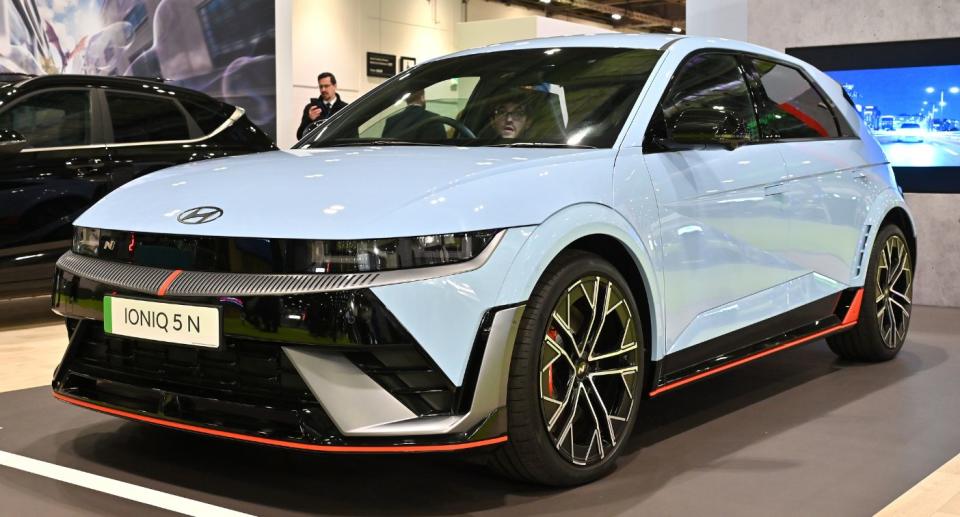

Price: $72,000 – $111,000.
Range: 384km – 507km.
Advantages: “It’s distinctively styled, it has a fun retro-futuristic design.”
Disadvantages: “For new Ioniq 5s, unless you step up to the epic $111,000 N model, it doesn’t have much of a sporty feel for an EV but there is an update coming mid-year.”
Where is the value?: Design and functionality. The Ioniq 5 doesn’t look like anything else on the market, and the interior has plenty of clever details.
How much will it cost to fully charge? With a battery capacity of 77.4kWh it will cost approximately $28 to fully charge .
Kia EV6
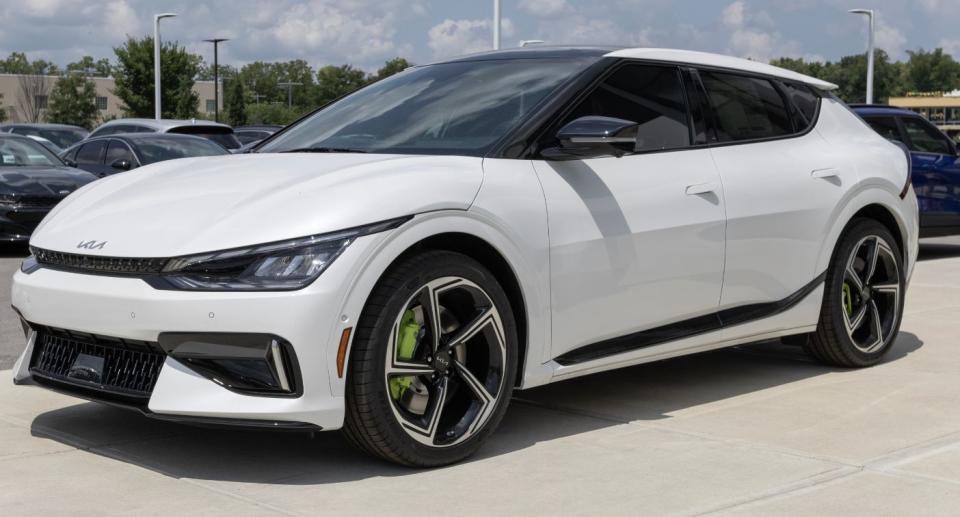

Price: $72,590 – $99,950.
Range: 424km – 528km.
Advantages: “If the Ioniq 5’s retro styling isn’t to your taste, the EV6 is essentially the same car underneath but with a completely different look. It also has a sportier feel.”
Disadvantages: More on the expensive end of the EV market but the Kia EV6 is an SUV design that appeals to many buyers.
Where is the value?: It’s more expensive than its Tesla Model Y arch-rival, which remains a value leader in the segment.
How much will it cost to fully charge? Here the EV6 is the same as the Hyundai Ioniq 5. With a battery capacity of 77.4kWh it will cost approximately $28 to fully charge.
Tesla Model Y
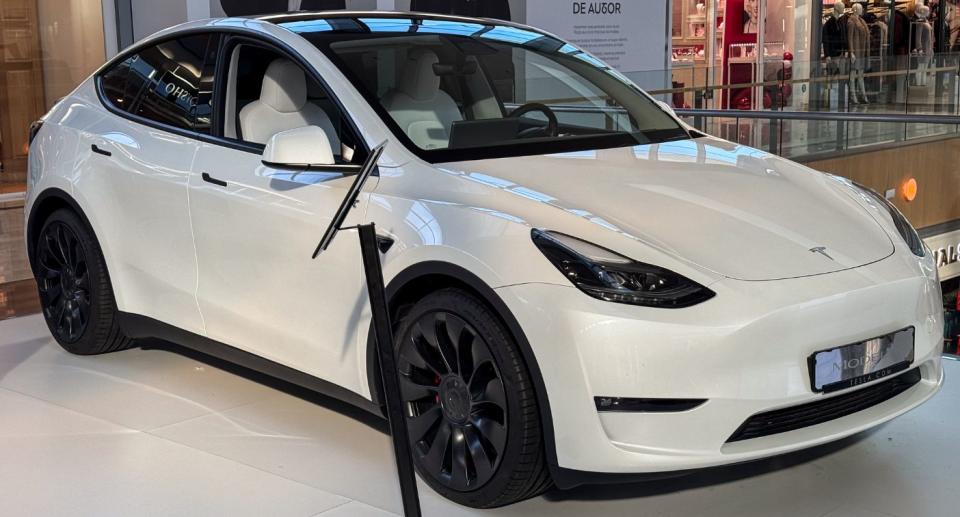

Price: $63,900 – $$82,900.
Range: 455km – 533km.
Advantages: “Tesla’s approach to technology really resonates with a lot of buyers. Teslas are enormously popular and account for about 50 per cent of EV sales in Australia.”
Disadvantages: Doesn’t have Android Auto or Apple Car Play, no surround view camera or rear-cross traffic alerts.
Where is the value?: Plenty of storage space, suitable for families. “It’s easy to fit a pram in there, there’s more room in every dimension than a Model 3.”
How much will it cost to fully charge? Tesla Australia doesn’t disclose battery capacity so we can’t say.
BYD Seal
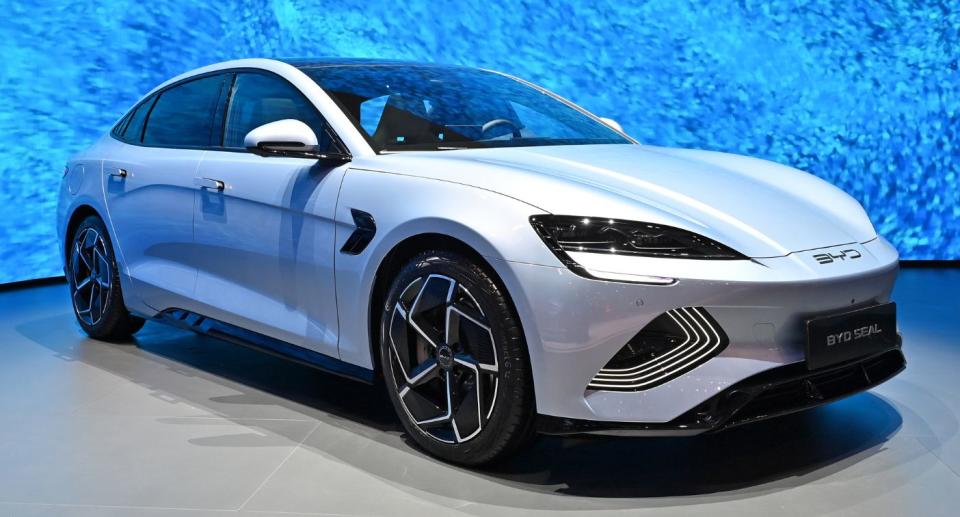

Price: $49,888 – $68,748.
Range: 460km – 570km.
Advantages: “This is a sedan to rival the Tesla Model 3. It’s stylish, comfortable and loaded with tech as well. It’s a pretty tantalising option.”
Disadvantages: “There isn’t a massive boot, it has a roomy cabin but the boot space isn’t enormous.”
Where is the value?: Price. Along with the MG range, BYD Seals are among the cheaper EV options.
How much will it cost to fully charge? With a battery capacity of 61.44kWh it will cost approximately $22 to fully charge.
BMW iX1
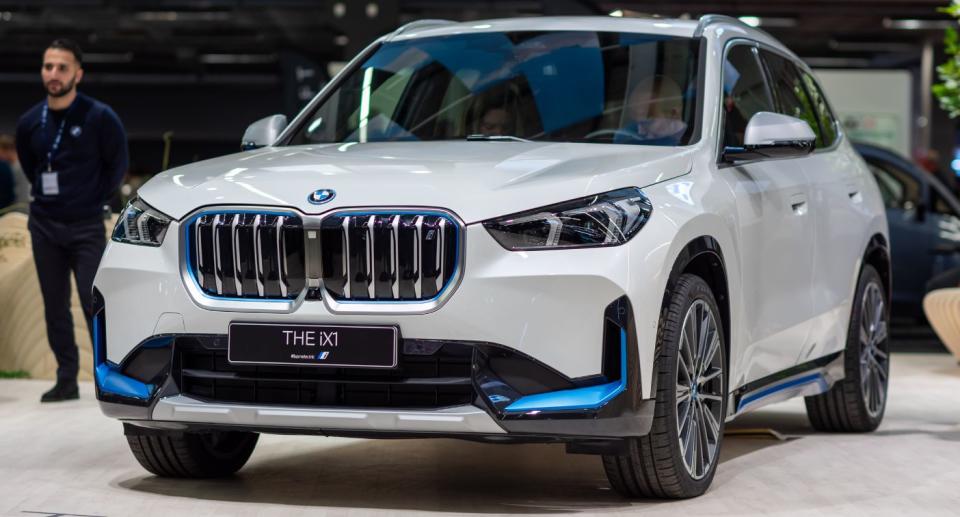

Price: $78,900 – $84,900.
Range: 439km – 474km.
Advantages: “If you want something that has more of a European feel about it, this option is really desirable. It is an SUV so has a pretty spacious cabin, and it has a premium feel inside.”.”
Disadvantages: For the price, you can get larger vehicles with more range.
Where is the value?: It’s among the most affordable EVs from a luxury brand.
How much will it cost to fully charge? With a battery capacity of 64.7kWh it will cost approximately $23 to fully charge.
Do you have a story to tell? Contact yahoo.finance.au@yahooinc.com
So is it worth getting an electric car in Australia?
NRMA’s Peter Khoury told Yahoo Finance that Australia’s EV take-up was “not at the levels of Europe” but was “increasing as a percentage of new cars sold and we expect it to continue, now more makes and models are becoming available”.
“If you live in a home where you can charge in a garage, it’s a more attractive proposition to someone living in an apartment. Now there’s more choice on the market and a greater breadth of prices, you’ll see more people taking up EVs,” he said.
Khoury said Australians’ take up of EVs was initially slow, with research showing “range anxiety” and lack of charging stations were the top concerns.
The NRMA and the federal government are rolling out 130 new charging stations along the national highway network, connecting rural communities with EV infrastructure.
The new Vehicle Efficiency Standard, due to come in by January 2025, to encourage suppliers to import more fuel-efficient vehicles is also hoped to drive greater EV ownership.
Get the latest Yahoo Finance news – follow us on Facebook, LinkedIn and Instagram.

